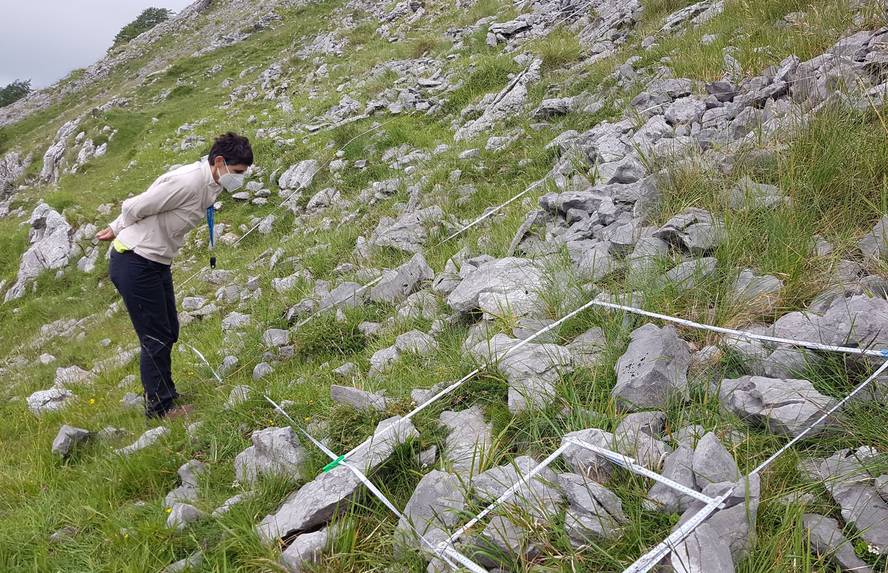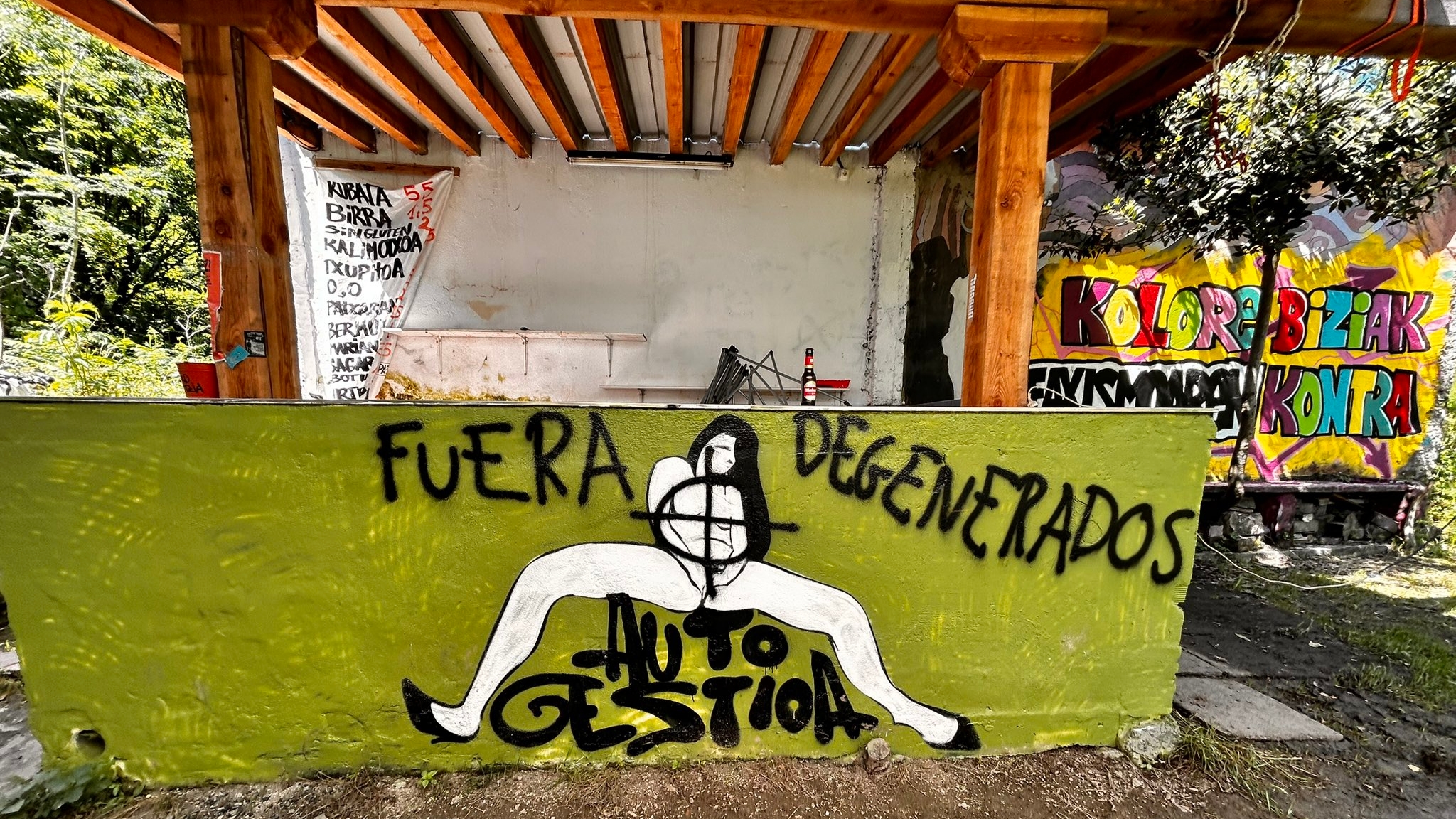Society
Environment
Politics
Economy
Culture
Basque language
Feminism
Education
International
Opinion
wednesday 07 may 2025
Automatically translated from Basque, translation may contain errors. More information here. 
Where is Obaba
- Bernardo Atxaga ::Two brothers Planting in 1985 Price: $11.25

If you want to know, Obabakoak will apparently turn to the collection of short stories, following his nose. And it is not the longest path, of course, although Obaba, already mentioned before in the work, has appeared in other accounts. Before the formation of the Obabaco itself, several local tales could be read loosely, here and there. Such as the explanation of the letter found in the house of the rector Camilo Lizardi, who opened the collection in 1982 – where Obaba first appears. When the snake, from '84, looks at the bird, Atxaga also locates this delicios in that same geography.
For the first time, but in a complete and profound way, what really showed us where Obaba is (the symbolic capacity of the story, the use of different voices, the presence of innocents according to Javier Goñi) was two brothers. The intuition is confirmed by Ramón Sánchez Lizarralde. Two brothers, the short novel, the novel, of 85, the shadows of the big brother by Obama, well, condemned to shadows, but not of little value for it. Iñaki Alde is the one who comes to his aid this time when he includes it among the best novels of the 80s. Let's see why.
One of the two brothers, Daniel, has something, “just a little song in the head,” something that makes him different from the others. And when they become orphans, their youngest brother Paul, fifteen years old, will have to take care of him, he will have to tie him in short if the supposed harmony of the people does not crack. The pulsations are not easy to resist, tensions arise with Carmen and Teresa and the rest of the men and women who are straight and straight and without mantras. Until a movement will mark his fate. The story, otherwise impossible, will end as it should.
That tragedy is what Atxaga tells us, tragedy, even if the narrators are birds, squirrels, snakes and/or geese. Tragedy, although on the surface it seems like a flat story, a little crow that is told. Tragedy, because it shows us that the system is superior to the individual, that the unequal needs the strange outside of the group if the group wants to advance, that the unequal is given in sacrifice in the name of who knows what the higher intentions are. And best of all, that he does this through parody, a miraculous story rather than fantastic, that he turns to the benign and sugary reading of this genre, showing off the reverse. And there is no escape, no forgiveness, no room for redemption. That's Obaba, folks.
Two brothers and sisters. Now that Atxaga has apparently gone to Yangambi, it’s not the longest way to go back to Obaba, obviously the most abrupt.
For the first time, but in a complete and profound way, what really showed us where Obaba is (the symbolic capacity of the story, the use of different voices, the presence of innocents according to Javier Goñi) was two brothers. The intuition is confirmed by Ramón Sánchez Lizarralde. Two brothers, the short novel, the novel, of 85, the shadows of the big brother by Obama, well, condemned to shadows, but not of little value for it. Iñaki Alde is the one who comes to his aid this time when he includes it among the best novels of the 80s. Let's see why.
One of the two brothers, Daniel, has something, “just a little song in the head,” something that makes him different from the others. And when they become orphans, their youngest brother Paul, fifteen years old, will have to take care of him, he will have to tie him in short if the supposed harmony of the people does not crack. The pulsations are not easy to resist, tensions arise with Carmen and Teresa and the rest of the men and women who are straight and straight and without mantras. Until a movement will mark his fate. The story, otherwise impossible, will end as it should.
That tragedy is what Atxaga tells us, tragedy, even if the narrators are birds, squirrels, snakes and/or geese. Tragedy, although on the surface it seems like a flat story, a little crow that is told. Tragedy, because it shows us that the system is superior to the individual, that the unequal needs the strange outside of the group if the group wants to advance, that the unequal is given in sacrifice in the name of who knows what the higher intentions are. And best of all, that he does this through parody, a miraculous story rather than fantastic, that he turns to the benign and sugary reading of this genre, showing off the reverse. And there is no escape, no forgiveness, no room for redemption. That's Obaba, folks.
Two brothers and sisters. Now that Atxaga has apparently gone to Yangambi, it’s not the longest way to go back to Obaba, obviously the most abrupt.
Most read
Using Matomo
#1
#2
Unai Lomana Uribezubia
#3
#4
Unai Lomana Uribezubia
#5
Mikel Garcia Idiakez
Newest
2025-05-07
Elhuyar
The measurement of dark biodiversity shows that the impact of human activities is greater than expected
2025-05-07
Mikel Garcia Idiakez
Grandparents who end up tired of taking care of their grandchildren
Six out of ten grandparents end up exhausted when they have to take care of their grandchildren for several days, and 30% say that their personal life is affected by the care of their grandchildren. This is data from the Observatory of the Third Age of the French State, recently... [+]
2025-05-07
Euskalerria irratia
EHZ and Hatortxu Rock announce a joint bonus
The voucher to attend both festivals costs 150 euros and can be purchased from 6 to 19 May. The EHZ festival will be held from June 27th to 29th in Enrichment and the last Hatortxu will take place at Rocka Lake, from July 24th to 27th.
2025-05-06
Unai Lomana Uribezubia
The Department of Education will present on Thursday a new proposal “to ensure better attention to students and improve results”
The proposal comes in the wake of the new strike days registered by the unions ELA, Steilas, LAB and CCOO. They will be known in detail on May 8, but the Minister of Education of the Basque Government has given some clarifications."Lower ratios", "increase in the number of teachers"... [+]
2025-05-06
Eneko Imaz Galparsoro
Worker killed in workplace accident, Laudion
A worker was found dead Tuesday morning at Bebidas Serrano in Laudio. Osalan points out that the main hypothesis is that the man has had a heart attack. With the death in this accident, 19 workers have already died in workplace accidents in 2025.
2025-05-06
Unai Lomana Uribezubia
A racist attack on San Francisco street in Bilbao
Police raided a hair salon last week, according to the Socialist Council of Bilbao. Images of a hair salon camera have been released.
2025-05-06
Eneko Imaz Galparsoro
Merz does not get an absolute majority as chancellor in the German Parliament
Although the alliance between the CDU-CSU and the SPD has 328 seats in the Bundestag, Merz has received the support of 310 deputies in Tuesday’s vote, six less than what is needed to get a majority. This is the first time since Germany has been a federal republic that a... [+]
2025-05-06
Estitxu Eizagirre
The City Council of Amasa-Villabona negotiates with the Premier the conditions for the installation of two windmills in the communal lands of Amasamendín
Ander Goikoetxea is Councillor of Amasa-Villabona and Member of Parliament of EH Bila. Premier ESPF Ipaz Haizea explains how the process has been so far for the two windmills it wants to implement in Amasamendi.
2025-05-06
Mikel Aramendi
THE ANALYSIS
Will some lost rocks condition East Asia?
The Diaoyu or Senkaku islands, located between Taiwan and Japan, have again been mentioned: Chinese Coast Guard helicopters repelled a Japanese helicopter from entering “Chinese airspace illegally” around the islands last Saturday. For five minutes, shaking. Something that... [+]
2025-05-06
Antxeta Irratia
The Lakaxita youth centre in Irun denounces fascist paintings again
Last December, the youth center also denounced the Nazi-fascist paintings, and on this occasion threats such as “Stop LGTBI”, “Out of the Degenerate” or “Do not Let Us Sleep” have been messages that have appeared on the walls of Lakaxita during the weekend, along... [+]
2025-05-06
Gorka Peñagarikano Goikoetxea
23 MEPs ask the European Union to intervene in support of the Freedom Flotilla
A letter has been sent to the EU Head of Diplomacy by several MEPs from four parliamentary groups, including the EP Collection. The Freedom Flotilla is still in international waters.
2025-05-06
Eneko Imaz Galparsoro
Romanian Prime Minister Resigns After Rise of Far Right
The consequences of the victory of far-right candidate Simion in the Romanian presidential election have risen rapidly. The Social Democrat Marcel Ciolacu has resigned, arguing that the government coalition that sought to stop the growth of the ultra-right “has no reason to... [+]
2025-05-06
Unai Lomana Uribezubia
At the Assembly of Josebe Iturrioz Nago:
"Trans people are often treated as objects of research"
I am who I am. It has organized an International Conference to talk about transsexuality in children and young people. The program was held between May 5 and 6 and has been packed with lectures. Some 400 experts and experts specialised in a wide range of areas of knowledge to... [+]
Eguneraketa berriak daude
























